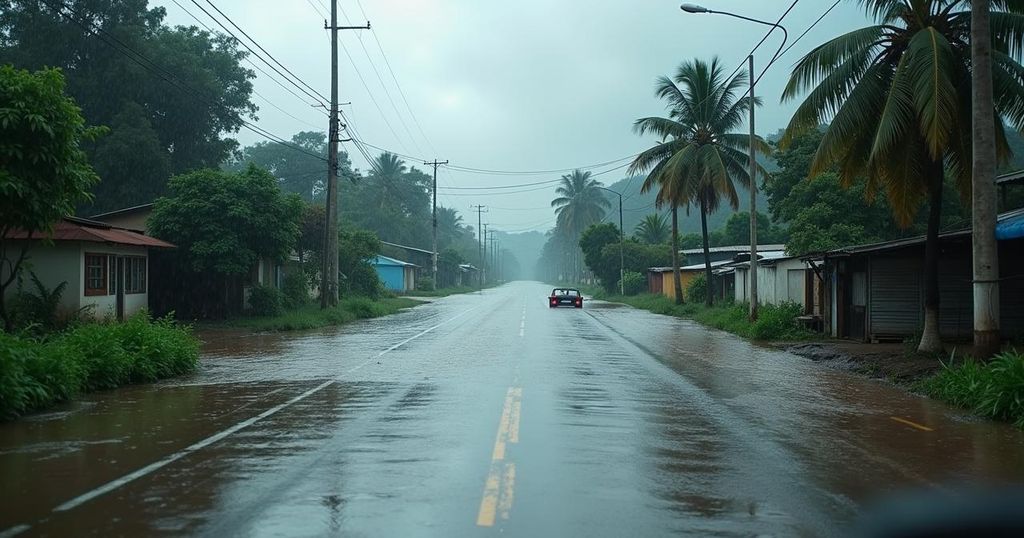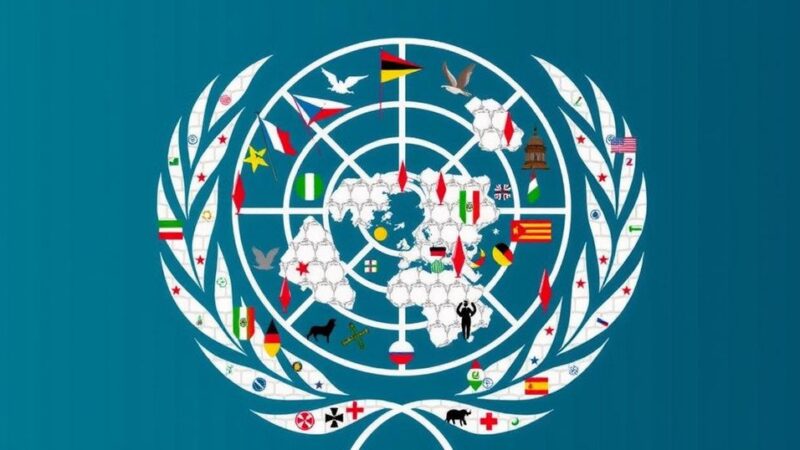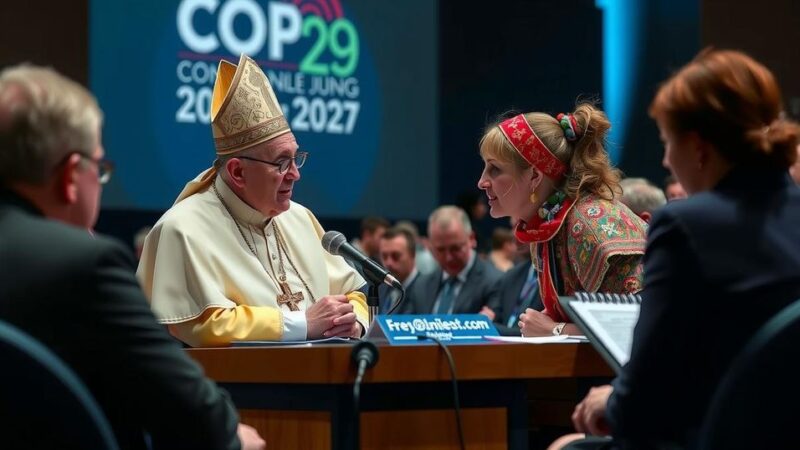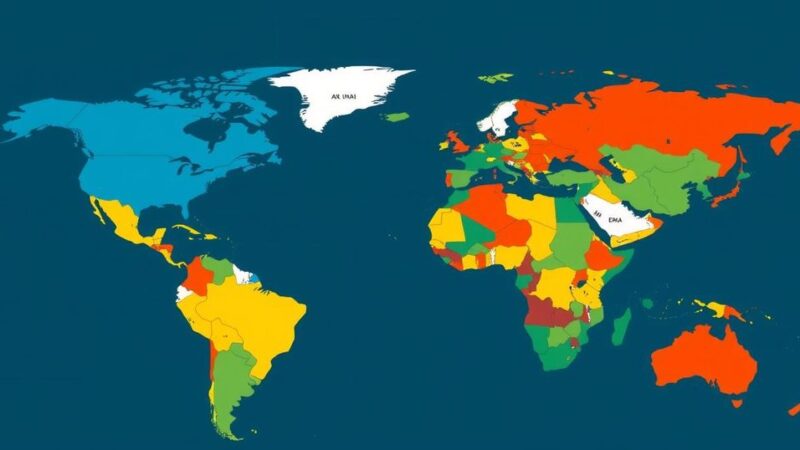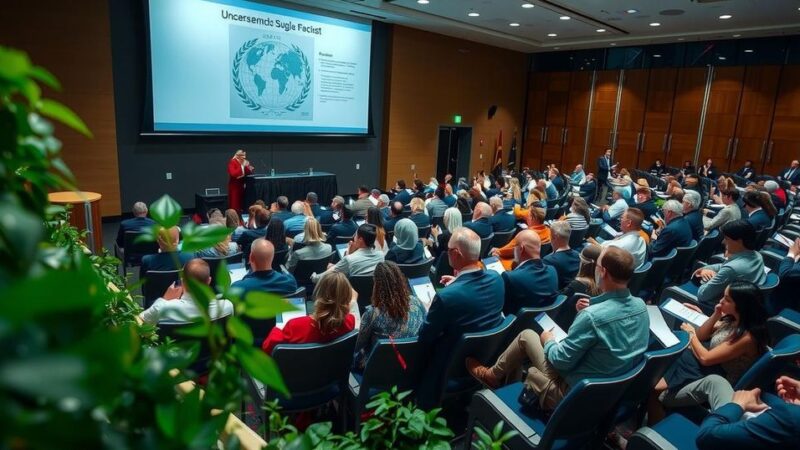Torrential rains have caused catastrophic flooding in West and Central Africa, particularly affecting northeastern Nigeria, where over 400,000 individuals have been impacted. The floods have resulted in more than 1,000 fatalities and extreme humanitarian challenges across several nations in the region. Community resilience is evident as many individuals like Saleh Bukar assist in rescue efforts amidst widespread destruction and displacement.
Torrential rains sweeping through West and Central Africa have resulted in severe flooding, particularly in northeastern Nigeria, where the impacts have been devastating. The United Nations has reported that over 400,000 people have been affected by the flooding, leading to mass displacement and widespread destruction. Aerial photographs reveal the extensive damage in Maiduguri, where houses are partially submerged following a dam collapse. Residents recounted harrowing experiences, with one resident noting the frantic cries of neighbors warning others that “Water is flooding everywhere!” The floods, which have claimed more than 1,000 lives across the region this year alone, have compounded existing humanitarian issues in countries like Chad, Niger, Mali, and Nigeria, impacting over four million individuals in West Africa. Rescue operations continue amid overwhelming challenges as local authorities struggle to provide assistance. Affected individuals like Saleh Bukar, who aids fellow victims while sheltering himself, exemplify the resilience and communal spirit amidst despair. As forecasts indicate more rainfall, authorities remain apprehensive regarding the situation. The recent and catastrophic floods in West and Central Africa have been attributed to unprecedented torrential rains that have unleashed chaos on vulnerable regions, particularly in Nigeria. Maiduguri, a city already strained by years of extremist violence, has witnessed some of the most tragic consequences of this natural disaster, further exacerbating humanitarian difficulties. The combination of heavy rainfall, the failure of critical infrastructure such as dams, and the overwhelming displacement of populations have driven local governments and international organizations to urgently seek resources and support to assist affected communities. The World Food Program has initiated emergency food and cash assistance in these hard-hit areas, but many survivors convey feelings of abandonment and despair. “Water is flooding everywhere!” – Saleh Bukar
The recent severe flooding across West and Central Africa is a consequence of torrential rains, dramatized by a dam collapse in Maiduguri, Nigeria. This situation has resulted in a humanitarian crisis affecting over four million people in the region. The area is notably vulnerable to extreme weather events, exacerbated by weak infrastructure and socio-economic instability. The concurrent challenges of climate change coupled with existing conflicts, such as insurgency from Boko Haram in Nigeria, have compounded the effects of these natural disasters, making the regions most affected less resilient to environmental shocks. As global warming trends continue, the World Meteorological Organization warns of an escalating frequency and intensity of these floods, highlighting the inadequacy of infrastructure in sub-Saharan Africa to adapt to such extreme weather events.
In conclusion, the floods in West and Central Africa represent a significant humanitarian crisis, disproportionately affecting the most vulnerable populations already experiencing hardship. With over one million people displaced and substantial loss of life, authorities and humanitarian organizations face an uphill battle in providing adequate support and resources. The continuing forecast of severe weather raises concerns of further tragedies unless urgent interventions are made.
Original Source: apnews.com
